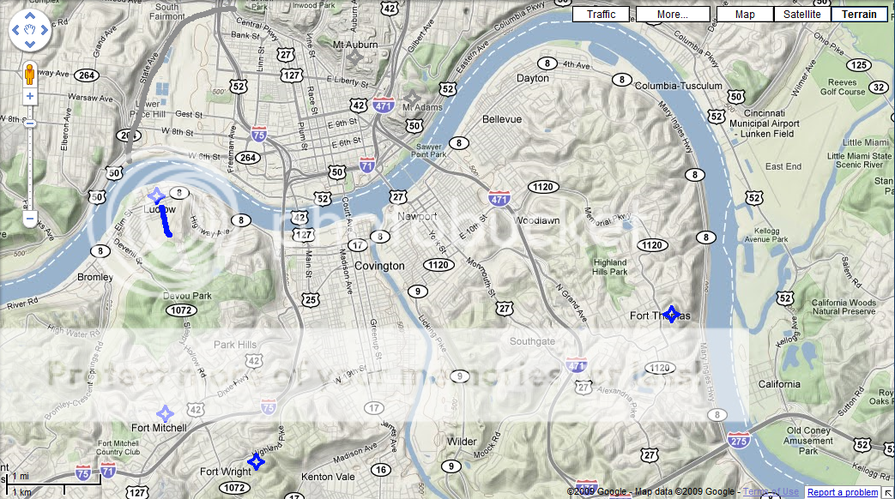Not DC, but a city perhaps just as important to the nation.

And since I can't edit part 32 anymore, the second section of the Cumberland Campaign will be a new part.
Part Thirty-Three: The Battle of Cincinatti
After being diverted at Danville, Longstreet swung the Army of the Carolinas to the east and back north. Longstreet reached Lexington on the 11th of May, and after a day in the city, continued north. General Buell and the Army of the Wabash continued to trail behind. Buell lost Longstreet after Lexington when the Army of the Carolinas continued north along the railroad line but Buell led the Army of the Wabash along the right bank of the Kentucky River. After a week and a half of marching, Longstreet met up with Forrest south of Covington and Newport in Kentucky on the 24th of May. While the meetup of the two forces was unanticipated, Buell was able to relay the general direction of Longstreet's army up to the Union and a set of fortifications were hastily set up south of the two cities.
The Army of the Carolinas had followed the Licking River north and met up with Forrest at Leitch's Station[1]. The Union defenses south of the Ohio River were weak, but there was still a string of forts in the way. On the 27th of May, Forrest and the third corps of the Army of the Carolinas took Fort Whittlesey[2] in the east. Meanwhile, the first corps of Longstreet's army sneaked across the Licking River once more and surprised the battery at Fort Wright. By June, the two nearest forts had been taken and Longstreet and Forrest were free to advance the final miles to the Ohio River. Covington and Newport, then the second and third largest cities in Kentucky, were taken in days as many had already fled across the river to Cincinnati.
On June 4th the final battery south of the Ohio in Ludlow was captured by the Confederates, and Longstreet and Forrest began planning to cross north into Cincinnati. On the 7th, they crossed the two bends in the River on either side of Cincinnati and encircled the city. The city militia lasted for five days with the toughest fighting east of the city at Mount Adams before Cincinnati was taken by the Confederacy. Cincinnati was only held for three days before the Army of the Wabash and the Army of the Ohio reached the outskirts of the city.
Longstreet and Forrest set up quick fortifications and batteries along the edges of Cincinnati, specifically on Mount Adams and Mount Auburn in the east and along Mill Creek in the west and north. Buell's forces were encamped at the bluffs to the west of Mill Creek while the Army of the Ohio led by Ulysses S. Grant was positioned to the northeast of Mount Auburn in Walnut Hills. On the 12th of June, Buell began using the artillery to bombard the Confederate lines across Mill Creek, using the higher ground to his advantage. In the afternoon, Buell's forces charged the Confederate positions as Grant moved the Army of the Ohio south toward Mount Auburn. While Longstreet managed to hold back the Union forces from crossing Mill Creek, Grant successfully took Mount Auburn. Grant's forces were about to cut off the fortifications at Mount Adams when Longstreet diverted some of his northern flank to distract Grant's army while Forrest was able to move into the center of Cincinnati.
The battle wore on for the next six days in the city, but the Union was slowly gaining ground. On June 20th, it became clear that the Confederates could not hold the city for much longer. Longstreet and Forrest gave orders to evacuate across the Ohio while ransacking as much of the city as possible. In the end, the devastation caused by the battle would affect Cincinnati for decades. The population of the city was reduced from 170,000 in 1860 to less than 100,000 in 1870[3]. Longstreet and Forrest continued a spirited defense at the southern bank of the Ohio, and were only pushed back by the end of July after Forrest had to return to Virginia after a Union offensive there.
[1] Wilder, KY
[2] Fort Thomas, KY
[3] Not sure if these are realistic figures for the Civil War era


